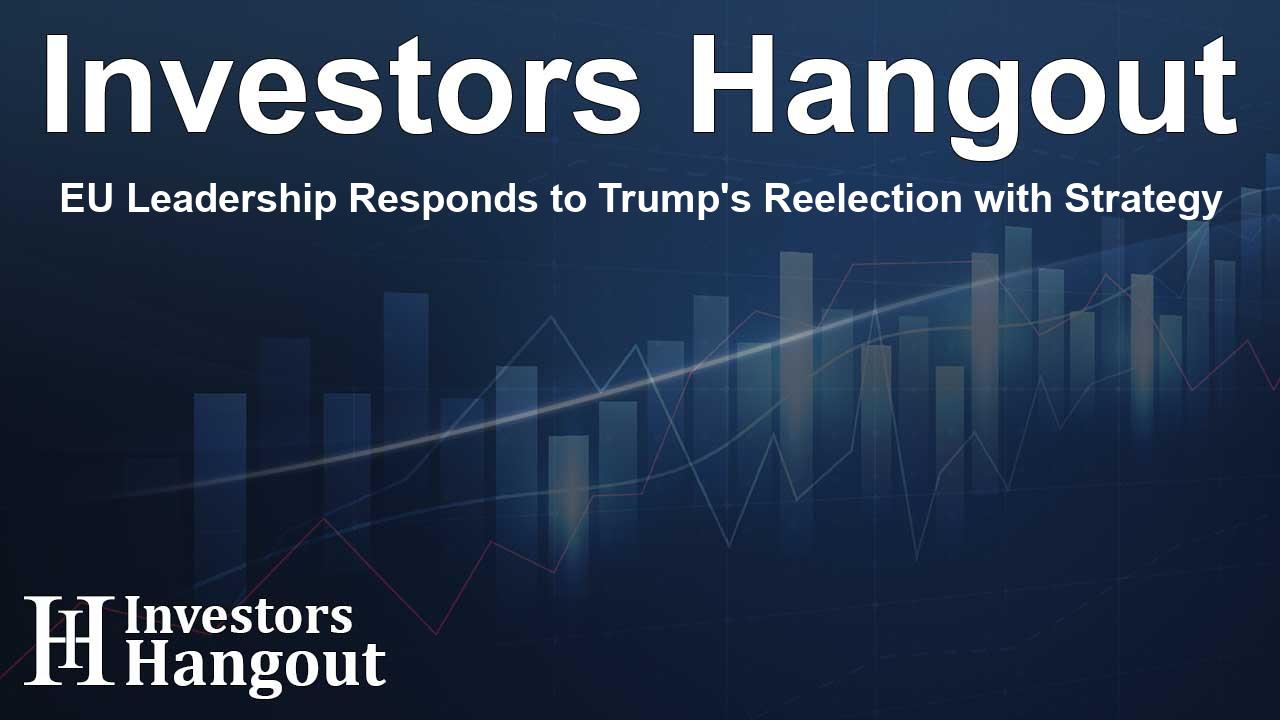EU Leadership Responds to Trump's Reelection with Strategy

EU Leadership Reacts to Trump's Return
The recent reelection of U.S. President Donald Trump has stirred a renewed urgency among European Union leaders to reform their economies and enhance competitiveness. This call to action comes as financial officials from across the EU recognize the pressing need to adapt amid global economic shifts.
Concerns Over Economic Competition
Leaders in the 27-member EU have voiced concerns about the bloc falling behind countries like China and the United States, particularly regarding the development of new technologies essential for transitioning to a low-emission economy. With a population of around 450 million, the EU is aware of the stakes involved as competition heats up.
Challenges Faced by European Innovators
Many innovative companies in Europe are finding it increasingly challenging to operate competitively. They often seek opportunities in the U.S., where access to capital is more accessible and regulatory burdens are comparatively lighter. This trend raises eyebrows about the long-term viability of European businesses.
The Chinese Market Influence
Additionally, firms in China benefit from significant government subsidies, enabling them to capture global market share effectively. Industries such as solar energy, electric vehicles, wind energy, and battery production are already dominated by Chinese companies, highlighting the urgency of action within the EU.
Call for Strategic Cooperation
Belgian Finance Minister Vincent Van Peteghem remarked, "The new Trump administration should be a wake-up call for Europe." He emphasized that instead of engaging in retaliatory measures regarding U.S. tariffs, the EU should direct its focus towards internal challenges like decreasing competitiveness and productivity gaps.
Furthering this sentiment, Paschal Donohoe, the chairman of euro zone finance ministers, suggested that the most effective response to the election of President Trump would be to intensify commitments toward established goals.
Preserving Trade Relationships
Former EU trade commissioner Valdis Dombrovskis, now overseeing the EU economy, accentuated the importance of maintaining strong trade relations with the U.S. while ensuring that Europe’s economic interests are safeguarded. "We need to preserve these trade relationships as our starting approach," he stated, highlighting a need for balance in international affairs.
Unifying Europe’s Economic Power
Polish Finance Minister Andrzej Domanski, pivotal in shaping EU finance ministers' agendas, acknowledged that success hinges on the EU's unity. He noted that lowering energy prices for both industry and consumers, alongside streamlining regulations, must be prioritized.
Strengthening the European Economy
French Finance Minister Eric Lombard emphasized that the change in the U.S. administration means the EU must reinforce its industrial base. He referred to upcoming initiatives like the Clean Industry Act as crucial tools to support European industries, along with advancing technological developments, particularly in sectors like artificial intelligence.
Conclusion
In conclusion, the time for European leaders to act is now. With external pressures mounting, a strategic and unified approach becomes essential to ensure the economic resilience of the EU. Moving forward, fostering innovation and creating a conducive environment for businesses will be critical as Europe navigates the complexities of a rapidly changing global landscape.
Frequently Asked Questions
What prompted EU leaders to call for economic reforms?
The reelection of President Trump signaled a potential shift in U.S. policies, raising concerns about Europe's competitiveness globally.
How might Europe improve its global competitiveness?
By focusing on innovative technologies, reducing regulatory burdens, and collaborating among member states, Europe can enhance its economic standing.
Why are European companies expanding to the U.S.?
Companies are attracted by easier access to capital and fewer regulatory challenges compared to Europe.
What role does the Chinese market play for the EU?
China's substantial government subsidies for its firms give them a competitive edge globally, especially in key industries.
What major initiatives are being discussed within the EU?
Key discussions include the Clean Industry Act and enhancing technological advancements, particularly in AI and clean energy.
About The Author
Contact Logan Wright privately here. Or send an email with ATTN: Logan Wright as the subject to contact@investorshangout.com.
About Investors Hangout
Investors Hangout is a leading online stock forum for financial discussion and learning, offering a wide range of free tools and resources. It draws in traders of all levels, who exchange market knowledge, investigate trading tactics, and keep an eye on industry developments in real time. Featuring financial articles, stock message boards, quotes, charts, company profiles, and live news updates. Through cooperative learning and a wealth of informational resources, it helps users from novices creating their first portfolios to experts honing their techniques. Join Investors Hangout today: https://investorshangout.com/
The content of this article is based on factual, publicly available information and does not represent legal, financial, or investment advice. Investors Hangout does not offer financial advice, and the author is not a licensed financial advisor. Consult a qualified advisor before making any financial or investment decisions based on this article. This article should not be considered advice to purchase, sell, or hold any securities or other investments. If any of the material provided here is inaccurate, please contact us for corrections.
